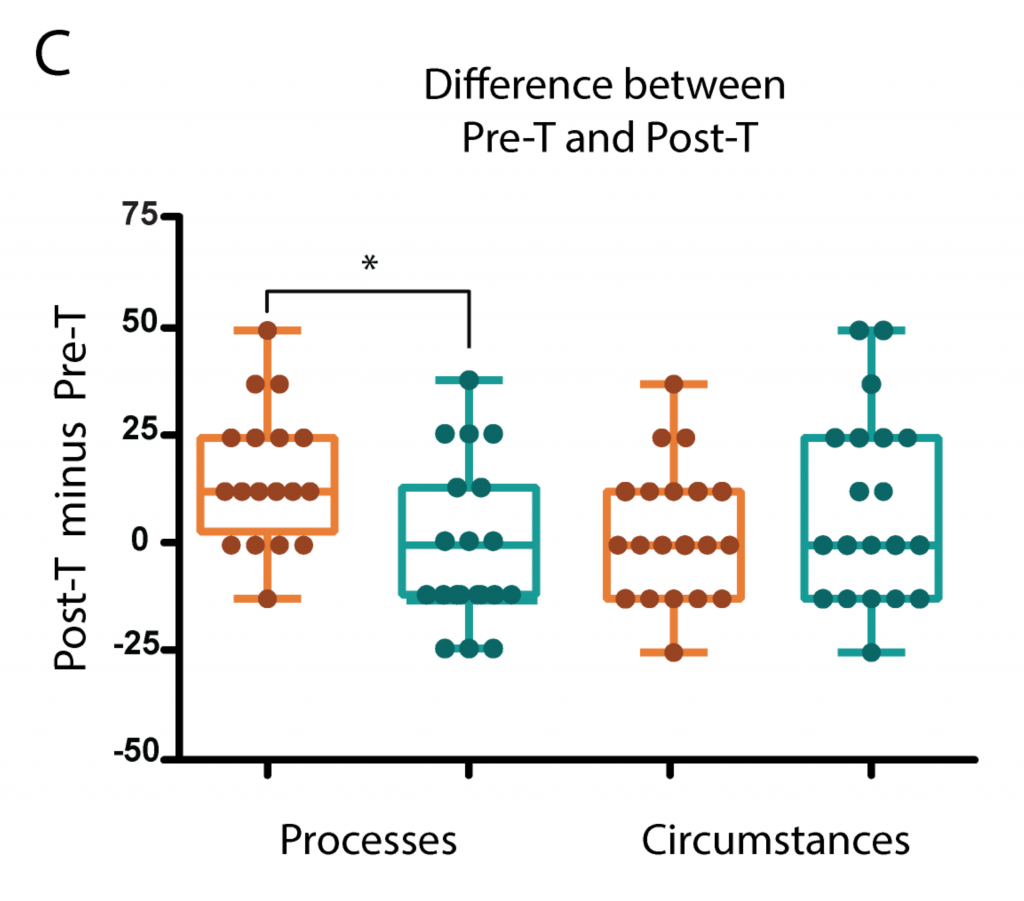Abstract:
This study examined whether systematic whole-body stimulation and increased attention to visuospatial motion patterns can enhance the appraisal of action meanings evoked by naturalistic texts. Participants listened to action and neutral (non-action) narratives before and after videogame-based bodily training, and responded to questions on information realized by verbs (denoting abstract and action processes) and circumstances (conveying locative or temporal details, for example). Strategically, we worked with dyslexic children, whose potential comprehension deficits could give room to post-training improvements. Results showed a selective boost in understanding of action information, even when controlling for baseline performance. Also, this effect proved uninfluenced by short-term memory skills, and it was absent when training relied on non-action videogames requiring minimal bodily engagement. Of note, the movements described in the texts did not match those performed by participants, suggesting that well-established effector- and direction-specific language embodiment effects may be accompanied by more coarse-grained sensorimotor resonance, driven by activation of motor and visuospatial sensory systems. In sum, the stimulation of movement-related mechanisms seems to selectively boost the appraisal of actions evoked by naturalistic texts. By demonstrating such links between two real-life activities, our study offers an empirical tie between embodied and situated accounts of cognition.


